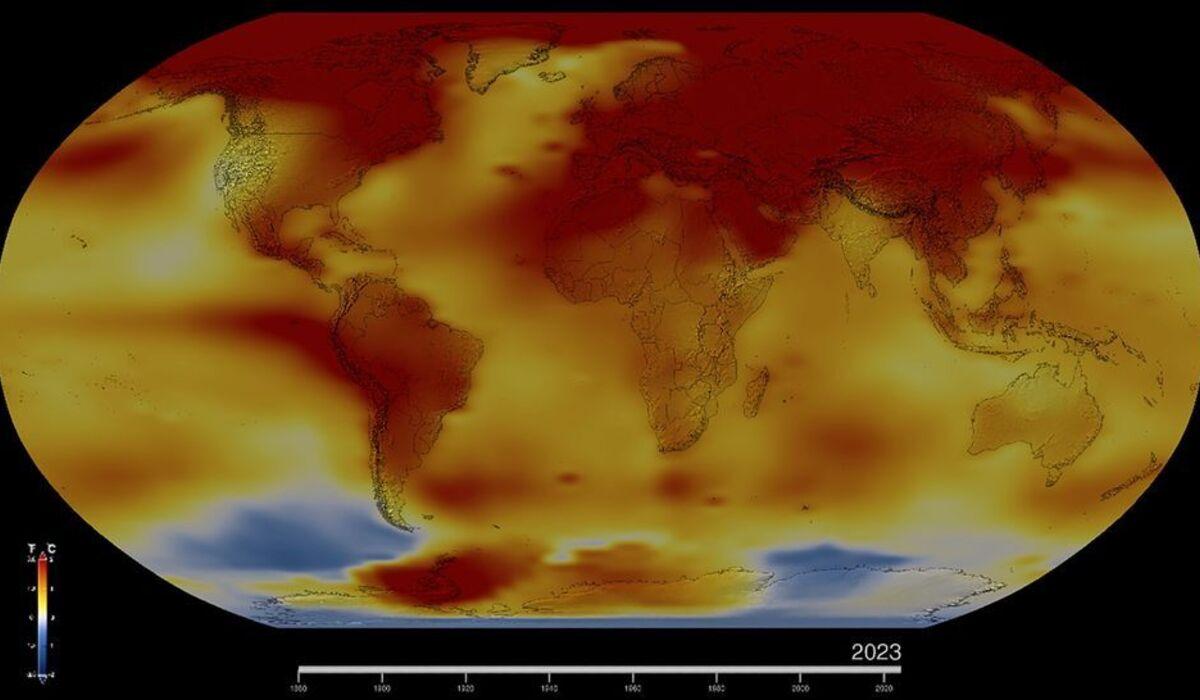In 2023, the Earth experienced its hottest year ever recorded, as declared by climate scientists from NASA and NOAA on January 12. The data presented by these agencies indicate that temperatures are rising at alarming rates, leading to severe climate-driven weather events worldwide. Notably, the analysis excluded satellite data or weather forecasts, relying on surface data such as sea surface temperatures from ships and buoys, and air temperatures from terrestrial weather stations.
The findings of these analyses left scientists astonished. Sarah Kapnick, chief scientist at NOAA, described 2023 as an extraordinarily warm year that resulted in numerous costly climate-driven weather events globally. Gavin Schmidt, director of NASA’s Goddard Institute for Space Studies, highlighted the significant difference in average temperatures that made 2023 the hottest year on record, surpassing 2016 and 2020. Schmidt emphasized the confidence in this declaration, noting that uncertainties in measurements were not large enough to change the bottom line.
The record temperatures observed in 2023 align with NASA’s predictions regarding the impact of changes in greenhouse gases and other factors on global temperatures. Russ Vose, chief of the analysis and synthesis branch at NOAA’s National Centers for Environmental Information, provided insight into the increased levels of greenhouse gases, such as carbon dioxide, methane, and nitrous oxide. These levels are at historic highs, with carbon dioxide concentrations 50% higher than pre-industrial levels.
Despite record-high temperatures globally, some regions experienced below-average temperatures in 2023, including Eastern Asia and North America. However, scientists deemed this variation somewhat typical, with 2023 decisively winning the title for the highest average temperature globally. Vose added that, based on current models, 2023 might not retain the record for long, projecting a one in three chance that 2024 will surpass it.
Kapnick highlighted the severe economic impact of extreme weather events in the U.S. during 2023, with a record-breaking 28 billion-dollar weather and climate disasters causing over $90 billion in damages. Since 1980, the U.S. has faced 376 such disasters, totaling over $2.6 trillion in costs.
Data from NOAA and NASA revealed that the Arctic is warming 3.5 times faster than the global average, while Antarctic sea ice trends are changing rapidly without clear explanations. Scientists acknowledged uncertainties in understanding the trends and forces influencing global temperature measurements.
Multiple studies, including those from the U.K.’s Met Office, the University of East Anglia, and a multinational team using data from the Institute of Atmospheric Physics at the Chinese Academy of Sciences, independently confirmed that 2023 was the hottest year on record. NASA’s full dataset of global surface temperatures through 2023, along with details of the analysis, is available online, contributing valuable information to the global conversation on climate change.

